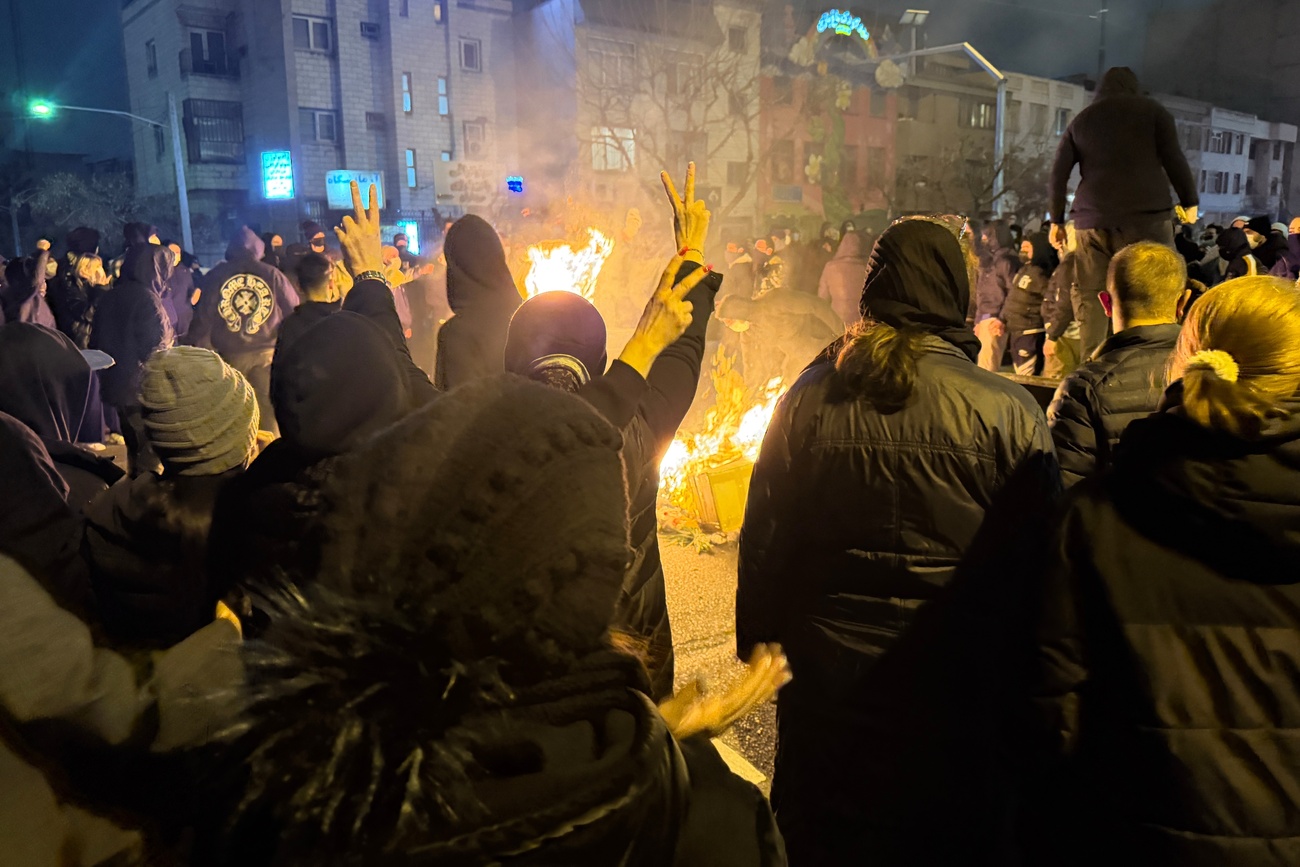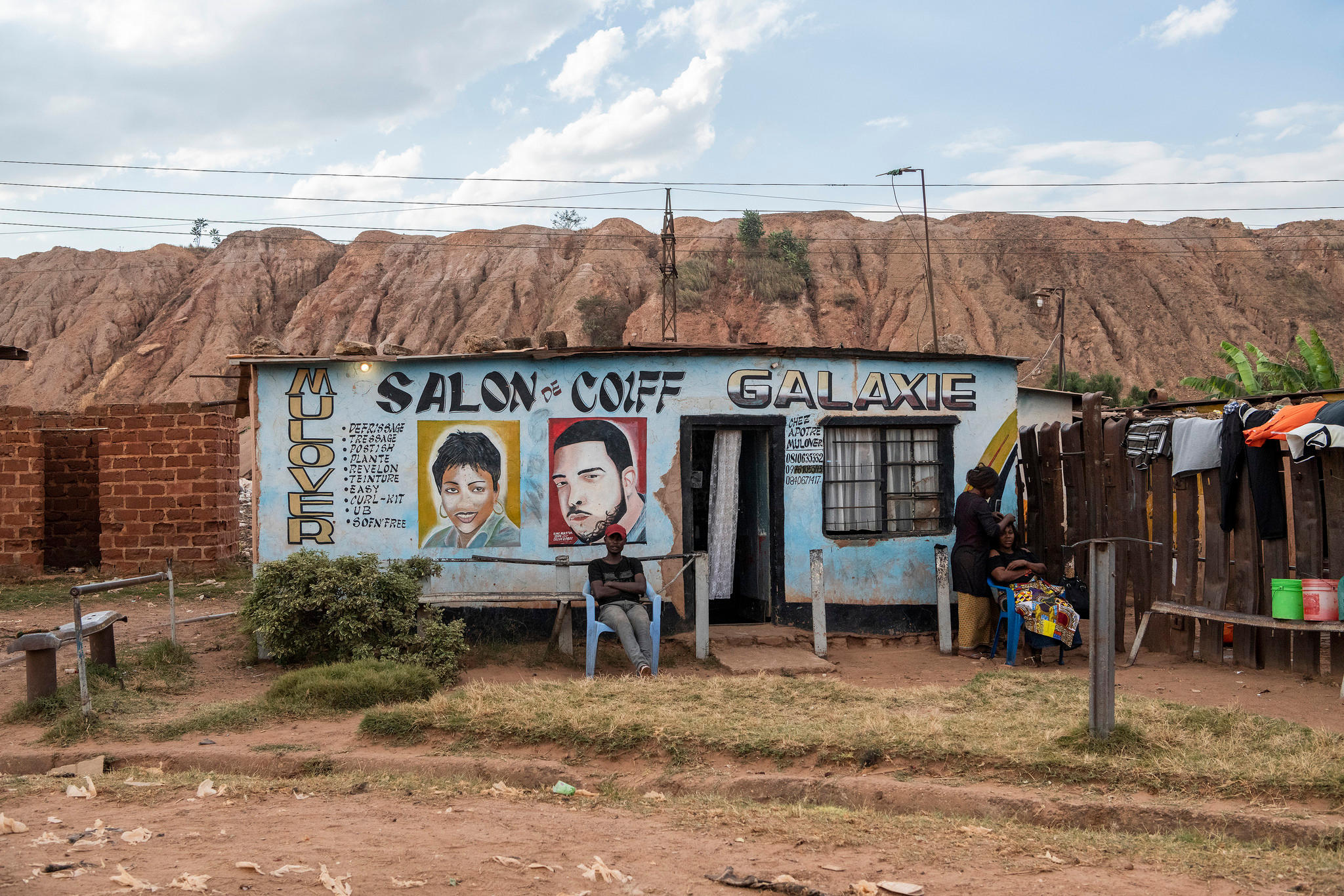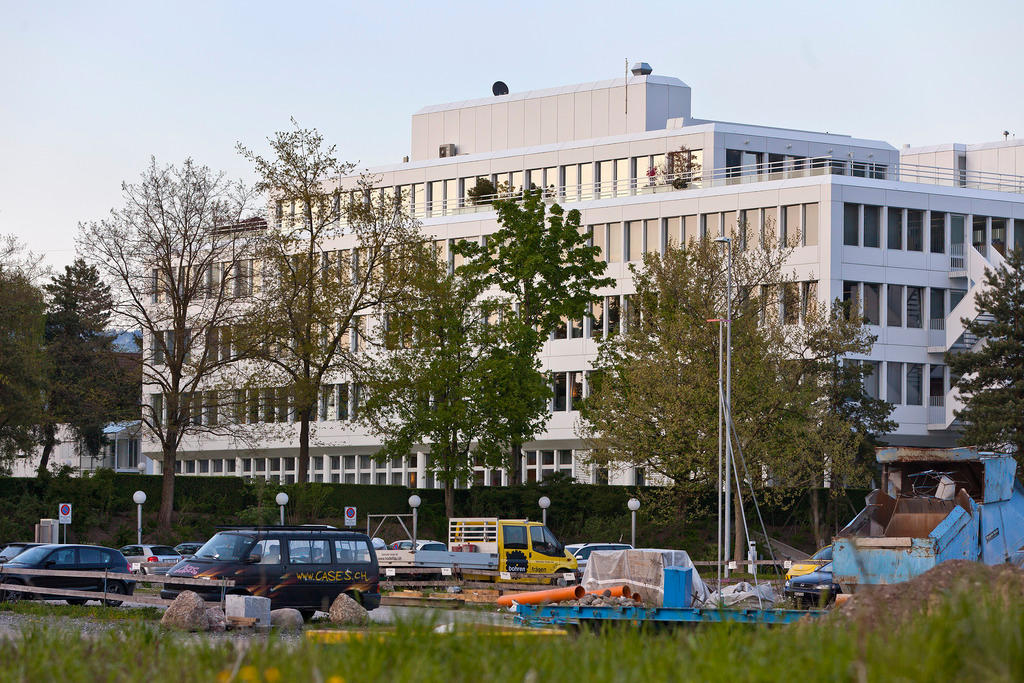
Glencore accused of environmental pollution in DRC

Two Swiss non-governmental groups have accused Swiss-based commodity trader and miner Glencore of continuing to pollute the air and soil around mines near the town of Kolwezi in the south of the Democratic Republic of the Congo (DRC).
According to a report External linkby the Swiss NGOs Bread for All and Catholic Lenten Fund, despite improvements to the water supply and water pollution around Kolwezi, the multinational’s due diligence for human rights and the environment remains incomplete.
The two NGOs studied environmental and human rights issues linked to copper and cobalt mines exploited by the Glencore-owned firms Kamoto Copper Company (KCC) and Mutanda Mining (MUMI).
The campaign groups said progress had been made since the last report in 2014External link. Glencore has now stopped the discharge of waste water from the KCC mine into the Luilu River. And for some of the inhabitants of the Luilu neighbourhood, a project to improve the water supply is underway. Glencore has also improved communication with the population.
+ Read more about the situation in DRC in the NGOs’ 2014 report
Nevertheless, the report found that the scale and number of air and soil pollution incidents remain high. The authors said that at the end of May 2018, dust levels in Kolwezi and in nearby Luilu were between 150 and 300 micrograms per cubic metre, and as high as 500 micrograms on the access roads to the mine. The daily average limit set by the World Health Organization (WHO) is 50 micrograms.
The report said farmers’ fields near the mines had been repeatedly contaminated by various pollutants. Many victims had been compensated for crop failures but were still waiting for compensation for the lasting damage to their soil. Glencore had failed to disclose the exact composition of the leaked substances in two cases, the NGOs stated.
‘Voluntary measures are not enough’
The NGOs accused Glencore of not acknowledging its responsibility for environmental and human rights problems immediately, and of only making improvements after pressure from local partners.
“This shows that voluntary measures by corporations are not enough. Little happens without pressure from non-governmental organisations and civil society. Problems are often tackled only reluctantly and prevention measures are insufficient,” the NGOs wrote in a statementExternal link.
In reply, Glencore said the NGOs’ report did not fully match the situation on the ground. Using examples of reported pollution in the localities of Moloka, Kaindu and Tshamundenda, it argued that its Congo subsidiaries had responded proactively to farmers’ concerns, had acted rapidly when there were leaks or spills, and had agreed to appropriate compensation.
“Both KCC and MUMI adhere to the requirements of their operating permits. In line with their approach of continuous improvement for their assets, KCC and MUMI work closely with local and national regulators as well as upgrade operational infrastructure to improve their mitigation of environmental impacts,” Glencore wrote in a letter to the NGOs.
The Zug-based firm said it was committed to high standards of corporate governance and transparency. Since 2007, it claims to have invested over $6.5 billion (CHF6.5 billion) in DRC on its operations, local infrastructure and social investment projects.

More
Glencore: an audacious business model in the dock

In compliance with the JTI standards
More: SWI swissinfo.ch certified by the Journalism Trust Initiative





























You can find an overview of ongoing debates with our journalists here . Please join us!
If you want to start a conversation about a topic raised in this article or want to report factual errors, email us at english@swissinfo.ch.